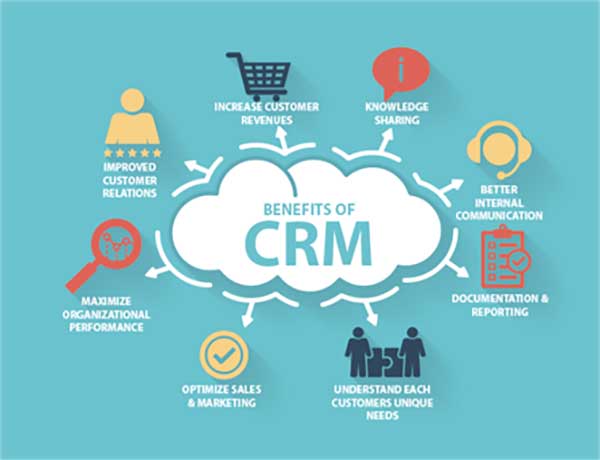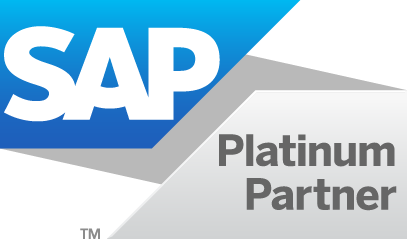Customer Relationship Management [or CRM for short] is a technology system that enables you to automate and integrate your customer-facing activities, such as sales, marketing, customer service, and e-commerce.
CRM systems also offer tools for customer analytics, personalisation, social media, collaboration and more. To put it simply, a CRM system helps provide a better relationship between a company and its customers, enabling streamlined processes and increased profitability.
A CRM system allows you to focus on your organization’s relationships with individual people, which includes customers, colleagues, or suppliers, throughout your lifecycle with them. This helps in finding new potential leads/customers, winning their business, and providing first-hand support on top of additional services throughout the relationship.
What are the core benefits of a CRM system?

There is a large amount of benefit to be extracted from a successful CRM implementation within your business. This ranges from creating higher levels of customer engagement, loyalty, and revenue to lower costs and smarter customer-facing activities. A CRM should effectively become a single source of truth for all customer interactions with your business. Here are some of the core business benefits:
(1) More effective, targeted marketing
Knowing more about your customers will enable you to increase the effectiveness of your marketing to them. For example, knowing the history of how a customer has interacted with you in the past, what they’ve expressed an interest in, or what they have bought, will enable you to tailor your messages to them accordingly.
(2) Improved collaboration
A CRM is designed to create a single view of the customer, ensuring that departments have access to the same source of truth. Providing this kind of powerful database on your customers will create increased collaboration between various departments in your business.
(3) Incredible customer insights
Grab new opportunities in sales, manage effective marketing campaigns and impress customers with personalized service by running real-time customer analytics.
(4) Focus on driving an improved customer experience
Provide contact centre reps and field service technicians a full 360° view of customers and automatic recommendations to help resolve issues on the first contact.
(5) Efficiency
A CRM system can be of great help to your organization as it provides automated processes and scheduled follow-up prompts. This would ensure that sales, marketing, and service teams accomplish more with less effort.
(6) Sales and revenue
Boost pipeline visibility and sell more – with integrated tools for sales force automation, lead management, forecasting, cross-selling, e-commerce, and more.
Who should use a CRM system?
f your organization is involved in sales, marketing, business development, marketing or any other form of work that is focused on customer account management, having a CRM system would be greatly beneficial.
Through customer data consolidation under a single platform instead of operating in separate departments, your organization would be able to generate a more absolute profile of your organization’s customers and their accounts.
The above would ensure that you are allowed to deliver more personalized engagements to them and gives one deeper insight into your own business.
Signs that your organization is ready for a CRM system
(1) The volume of clients you have (or potentially intend to have) is too high for your current system to handle.
If your organization has recently experienced an increase in growth, or you have managed to step into a new market of potential customers, it is crucial to make sure that you are ready to handle the higher demands that come with it. A CRM system can merge several separate databases into a single streamlined system that can grow concurrently with your business. This would allow your organization to reach its full potential.
(2) You want to improve internal communications within your organization and increase collaboration between employees.
With round the clock access on a centralized database, CRM systems allows everyone on a team to access the data that is of relevance to their work. This ensures that everyone is on the same page hence empowering them to make the right choices.
(3) You want to simplify lead management.
A CRM software helps reduce the costs of signing on new/potential customers by streamlining information. This makes it much simpler for your sales team when it comes to entering data and getting a customer to on board your organization. By having access to all existing and previous customer trends and preferences, your sales team is allowed to find instant solutions as well.
(4) You want to increase revenue and the level of productivity
A CRM software can simplify what you are doing and remove tasks from employees that are better done by a machine. This allows your organization to make better use of its best asset; human perseverance. CRM solutions provide your employees with the tools that they need to be most effective, this will lead to a better level of productivity and increase in revenue.
Why choose a Cloud based CRM system?
(1) Easy installation & use
One of the many concerns of a potential consumer is the complexity of the CRM installation process. Good news is, a modern Cloud-based CRM, is user-friendly and simple to install. All you need is a stable internet connection, log into your account and have instant access to it. Extra expenses do not have to be forked out for hardware, software or server maintenance as well. Not to mention a permanent IT person does not have to be on-site to watch over it. You need not worry about data migration, installations or even upgrades as all of it is done for you.
(2) Round the clock access
Round-the-clock accessibility is by far the greatest plus point of a cloud based CRM solution. You can access your database anytime and anywhere, basically even after working hours. To top it off, all of it is under a centralized database which means you can share the changes made with your colleagues.
By always staying connected to the central database, Cloud based CRM gives you the flexibility and freedom to do what you need to do when you need to do it.
(3) Reliable system
Nobody wants to imagine the possibility of a system that you rely on a daily basis can crash, leaving you with a potential financial meltdown.
With Cloud based CRM, every bit of information that is entered in will be backed up instantly. Every component in the Cloud is safely preserved and in worst-case scenario of sudden system failure, it will be instantly replaced and will not be disrupted.
(4) Affordable pricing
Cloud based CRM is relatively affordable and operates on a subscription model that requires minimal upfront investment and, as a result, reduces risk. Also, there are no hidden costs like buying additional hardware or license fees. What you have to commit to is a fixed monthly fee for a Cloud CRM package, which can be as low as SGD78.
(5) User-friendly
All you have to do is to purchase a software package at a fixed monthly rate to access a Cloud based CRM. It’s as simple as logging into your account with the access codes given, to ensure that you have a stable internet connection at all times and lastly, to have a preferred device, may it be a phone, tablet or laptop to work on.
(6) High-security levels
A very concerning matter for any business using web-based information storage systems is, nonetheless, security. Every company that offers CRM systems online know the above concern very much exists and takes security issues very seriously.
Providers of Cloud based CRM offers advanced automatized back-up policies and have clear data recovery plans if a breach happens. To add to it, an individual of Cloud services can further improve his/her data safety by using two-step authentication and strong passwords.















